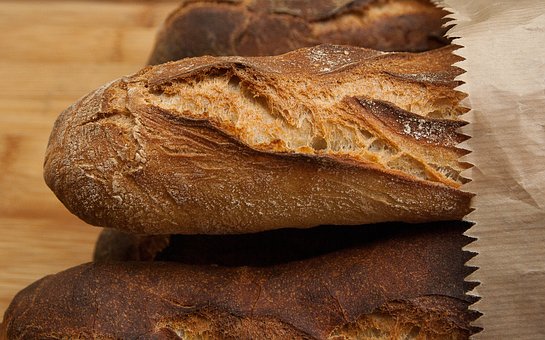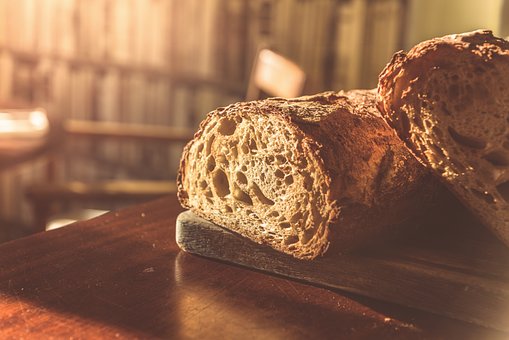Brown bread, also known as wholemeal bread, is made from whole wheat flour that includes all parts of the wheat kernel: the bran, germ, and endosperm. This type of bread is often considered to be healthier than white bread, as it contains more fiber, vitamins, and minerals. In this article, we will explore the nutritional value of brown bread per 100g, as well as its health benefits and any potential drawbacks.
First, let’s take a look at the nutritional value of brown bread per 100g. A 100g serving of brown bread typically contains around 245 calories, 2.5g of fat, 1.2g of saturated fat, 44g of carbohydrates, 10g of dietary fiber, and 8g of protein. Additionally, brown bread is a good source of several essential vitamins and minerals. A 100g serving of brown bread contains around 2.5mg of iron, 23mg of calcium, and 1mg of vitamin B1. Brown bread is also a good source of vitamin E, magnesium, and zinc.
One of the most notable benefits of brown bread is its high fiber content. A diet high in fiber can help to promote regular bowel movements, prevent constipation, and reduce the risk of colon cancer. Additionally, the high fiber content of brown bread can help to slow the absorption of glucose into the bloodstream, which can help to regulate blood sugar levels and reduce the risk of developing type 2 diabetes.
The wholemeal flour which is used for making the brown bread is rich in minerals, vitamins, and antioxidant compounds. The presence of B vitamins in wholemeal flour, particularly vitamin B1, helps in maintaining a healthy nervous system, while the presence of iron, zinc and magnesium are responsible for maintaining healthy immune system.
Moreover, the high protein content of brown bread can help to promote feelings of fullness, which can aid in weight management. The presence of vitamin E and other antioxidants in brown bread can also help to protect the body against the damage caused by free radicals, which can contribute to the development of chronic diseases such as cancer and heart disease.
However, it’s worth noting that some brown breads on the market are made with a mix of white flour and wholemeal flour and may not contain as much fiber and nutrients as bread made entirely from wholemeal flour. It’s always good to check the ingredients and nutritional value before buying any bread, This will ensure that you’re getting the most nutritious product possible.
It’s also important to mention that even though brown bread is considered healthier, it still contains calories and carbohydrates, and eating too much of it can contribute to weight gain. Therefore, it’s important to consume brown bread in moderation and balance it with other healthy foods as part of a balanced diet.
In conclusion, brown bread is a healthy food choice that is high in fiber, vitamins, and minerals. It can help to promote regular bowel movements, slow the absorption of glucose, promote feelings of fullness, and protect the body against the damage caused by free radicals. However, it’s important to choose bread that is made entirely from wholemeal flour and to consume it in moderation as part of a balanced diet. By doing so, you can enjoy the many health benefits that brown bread has to offer.

 Home
Home Health
Health Diet & Nutrition
Diet & Nutrition Living Well
Living Well More
More












